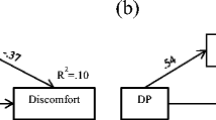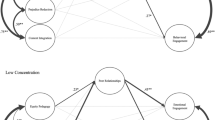Abstract
The challenge posed by academic ghostwriting extends beyond education, affecting moral and meritocratic expectations of learners. Through a sociological lens of the “accounts theory,” we analyzed the marketing language of 102 academic ghostwriting websites in English and Chinese to explore their legitimization of services in diverse cultures and contexts. Our research focused on how ghostwriting sites legitimize their services across diverse cultures and linguistic contexts while navigating the stigma associated with academic ghostwriting. We identified five neutralization techniques used by ghostwriting sites, including “Denial of responsibility,” “Denial of injury,” “Denial of the victim,” “Condemnation of the condemners,” and “Appeal to higher loyalties.” Our findings suggest that the marketing of academic ghostwriting is customized to appeal to potential clients’ cultural backgrounds, with Chinese ghostwriting sites emphasizing the authority of ghostwriters and English sites prioritizing empathy with users. The ghostwriting industry has diversified to meet the needs of diverse consumers and online environments. Our research provides insights into how ghostwriting sites devise market strategies based on cultural predispositions, shedding light on the complexities of the ghostwriting industry and its impact on the moral and educational landscape. It sheds light on how the dynamics of this market evolve, adapt, and ultimately influence the educational landscape, emphasizing the need for a holistic perspective on the forces at play in higher education.


Similar content being viewed by others
Data availability
The supporting data for this study can be made available by the authors upon receipt of a reasonable request.
References
Alon, S., & Tienda, M. (2007). Diversity, opportunity, and the shifting meritocracy in higher education. American Sociological Review, 72(4), 487–511. https://doi.org/10.1177/000312240707200401
Amigud, A. (2020). Cheaters on Twitter: An analysis of engagement approaches of contract cheating services. Studies in Higher Education, 45(3), 692–705. https://doi.org/10.1080/03075079.2018.1564258
Amigud, A., & Lancaster, T. (2020). I will pay someone to do my assignment: An analysis of market demand for contract cheating services on twitter. Assessment & Evaluation in Higher Education, 45(4), 541–553. https://doi.org/10.1080/02602938.2019.1670780
Anteby, M., & Occhiuto, N. (2020). Stand-in labor and the rising economy of self. Social Forces, 98(3), 1287–1310.
Austin, J. L. (1956). A plea for excuses: The presidential address. Proceedings of the Aristotelian Society, 57, 1–30.
Baird, M., & Clare, J. (2017). Removing the opportunity for contract cheating in business capstones: A crime prevention case study. International Journal for Educational Integrity, 13(1). https://doi.org/10.1007/s40979-017-0018-1
Balsiger, P. (2021). The dynamics of ‘Moralized Markets’: A field perspective. Socio-Economic Review, 19(1), 59–82. https://doi.org/10.1093/ser/mwz051
Bandelj, N. (2020). Relational work in the economy. Annual Review of Sociology, 46(1), 251–272. https://doi.org/10.1146/annurev-soc-121919-054719
Berman, E. P. (2012). Explaining the move toward the market in US academic science: How institutional logics can change without institutional entrepreneurs. Theory and Society, 41(3), 261–299.
Brent, E., & Atkisson, C. (2011). Accounting for cheating: An evolving theory and emergent themes. Research in Higher Education, 52(6), 640–658.
Bretag, T. (2019). Contract cheating will erode trust in science. Nature, 574(7780), 599–600.
Bretag, T., Harper, R., Burton, M., Ellis, C., Newton, P., Rozenberg, P., & van Haeringen, K. (2019). Contract cheating: A survey of Australian university students. Studies in Higher Education, 44(11), 1837–1856.
Bretag, T. (2020). A research agenda for academic integrity. Edward Elgar Publishing.
Brezina, T. (2000). Are deviants different from the rest of us? Using student accounts of academic cheating to explore a popular myth. Teaching Sociology, 28(1), 71–78.
Brighouse, H. (2022). The tyranny of meritocracy and elite higher education. Theory and Research in Education, 20(2), 145–158. https://doi.org/10.1177/14778785221113990
Bryant, E., Schimke, E. B., Nyseth Brehm, H., & Uggen, C. (2018). Techniques of neutralization and identity work among accused genocide perpetrators. Social Problems, 65(4), 584–602. https://doi.org/10.1093/socpro/spx026
Campbell, C. R., Swift, C. O., & Denton, L. (2000). Cheating goes hi-tech: Online term paper mills. Journal of Management Education, 24(6), 726–740. https://doi.org/10.1177/105256290002400605
Chang, F.-R. (2019). An examination of the self-presentation of the top five franchised English buxibans in Taiwan. Research in Comparative and International Education, 14(4), 450–465. https://doi.org/10.1177/1745499919893555
Chen, K. H., & Berman, E. P. (2022). Buying into the meritocracy: Taiwanese students and the market for college admissions services. Sociology of Education, 95(1), 23–42. https://doi.org/10.1177/00380407211055517
Clare, J., Walker, S., & Hobson, J. (2017). Can we detect contract cheating using existing assessment data? Applying crime prevention theory to an academic integrity issue. International Journal for Educational Integrity, 13(1), 1–15. https://doi.org/10.1007/s40979-017-0015-4
Clarke, R., & Lancaster, T. (2006). Eliminating the successor to plagiarism? Identifying the usage of contract cheating sites. Proceedings of 2nd International Plagiarism Conference (pp. 19–21). Northumbria Learning Press.
Crook, C., & Nixon, E. (2021). How internet essay mill websites portray the student experience of higher education. The Internet and Higher Education, 48, 100775.
Eaton, S. E., & Dressler, R. (2020). Multilingual essay mills: The need for research beyond English language commercial providers. In A research agenda for academic integrity (pp. 152–162). Edward Elgar Publishing.
Ellis, C., Van Haeringen, K., Harper, R., Bretag, T., Zucker, I., McBride, S., & Saddiqui, S. (2020). Does authentic assessment assure academic integrity? Evidence from contract cheating data. Higher Education Research & Development, 39(3), 454–469.
Fourcade, M., & Healy, K. (2007). Moral views of market society. Annual Review of Sociology, 33(1), 285–311. https://doi.org/10.1146/annurev.soc.33.040406.131642
Frye, M., & Woźny, A. (2021). Moralizing the production and sale of student papers in Uganda. American Sociological Review, 86(3), 430–464.
Hammer, G. (1976). How to exorcise academic ghostwriting. The Phi Delta Kappan, 57(5), 328–330.
Hofstede, G., & McCrae, R. R. (2004). Personality and culture revisited: Linking traits and dimensions of culture. Cross-Cultural Research, 38(1), 52–88.
Knapp, J. C., & Hulbert, A. (2017). Ghostwriting and the ethics of authenticity. Palgrave Macmillan US. https://doi.org/10.1057/978-1-137-31313-3
Lancaster, T. (2020). Commercial contract cheating provision through micro-outsourcing web sites. International Journal for Educational Integrity, 16(1), 4. https://doi.org/10.1007/s40979-020-00053-7
Lin, C.-H.S., & Wen, L.-Y.M. (2007). Academic dishonesty in higher education—A nationwide study in Taiwan. Higher Education, 54(1), 85–97. https://doi.org/10.1007/s10734-006-9047-z
Lines, L. (2016). Ghostwriters guaranteeing grades? The quality of online ghostwriting services available to tertiary students in Australia. Teaching in Higher Education, 21(8), 889–914. https://doi.org/10.1080/13562517.2016.1198759
Marriott, L., & Lai, J. C. (2023). Tax evasion and benefit fraud: A study of the use of techniques of neutralization. Deviant Behavior, 1–22. https://doi.org/10.1080/01639625.2023.2179442
Matza, D., & Sykes, G. M. (1961). Juvenile delinquency and subterranean values. American Sociological Review, 26(5), 712–719.
McCabe, D. L. (1992). The influence of situational ethics on cheating among college students. Sociological Inquiry, 62(3), 365–374.
McKenna, S. (2022). Plagiarism and the commodification of knowledge. Higher Education, 84(6), 1283–1298. https://doi.org/10.1007/s10734-022-00926-5
McKie, R. E. (2019). Climate change counter movement neutralization techniques: A typology to examine the climate change counter movement. Sociological Inquiry, 89(2), 288–316. https://doi.org/10.1111/soin.12246
Medway, D., Roper, S., & Gillooly, L. (2018). Contract cheating in UK higher education: A covert investigation of essay mills. British Educational Research Journal, 44(3), 393–418. https://doi.org/10.1002/berj.3335
Morris, E. J. (2018). Academic integrity matters: Five considerations for addressing contract cheating. International Journal for Educational Integrity, 14(1), 15. https://doi.org/10.1007/s40979-018-0038-5
Newton, P. M. (2018). How common is commercial contract cheating in higher education and is it increasing? A Systematic Review. Frontiers in Education, 3, 67. https://doi.org/10.3389/feduc.2018.00067
Quinn, S. (2008). The transformation of morals in markets: Death, benefits, and the exchange of life insurance policies. American Journal of Sociology, 114(3), 738–780. https://doi.org/10.1086/592861
Ramzan, M., Munir, M. A., Siddique, N., & Asif, M. (2012). Awareness about plagiarism amongst university students in Pakistan. Higher Education, 64(1), 73–84. https://doi.org/10.1007/s10734-011-9481-4
Rigby, D., Burton, M., Balcombe, K., Bateman, I., & Mulatu, A. (2015). Contract cheating & the market in essays. Journal of Economic Behavior & Organization, 111, 23–37. https://doi.org/10.1016/j.jebo.2014.12.019
Rossman, G. (2014). Obfuscatory relational work and disreputable exchange. Sociological Theory, 32(1), 43–63. https://doi.org/10.1177/0735275114523418
Rowland, S., Slade, C., Wong, K.-S., & Whiting, B. (2018). ‘Just turn to us’: The persuasive features of contract cheating websites. Assessment & Evaluation in Higher Education, 43(4), 652–665. https://doi.org/10.1080/02602938.2017.1391948
Scott, M. B., & Lyman, S. M. (1968). Accounts. American Sociological Review, 33(1), 46–62.
Shafaei, A., Nejati, M., Quazi, A., & Von Der Heidt, T. (2016). ‘When in Rome, do as the Romans do’ do international students’ acculturation attitudes impact their ethical academic conduct? Higher Education, 71(5), 651–666. https://doi.org/10.1007/s10734-015-9928-0
Sharma, S. (2020). I want it my way: Using consumerism and neutralization theory to understand students’ cyberslacking behavior. International Journal of Information Management, 53, 102–131. https://doi.org/10.1016/j.ijinfomgt.2020.102131
Sivasubramaniam, S., Kostelidou, K., & Ramachandran, S. (2016). A close encounter with ghost-writers: An initial exploration study on background, strategies and attitudes of independent essay providers. International Journal for Educational Integrity, 12(1). https://doi.org/10.1007/s40979-016-0007-9
Sykes, G. M., & Matza, D. (1957). Techniques of neutralization: A theory of delinquency. American Sociological Review, 22(6), 664–670.
Taylor, K., Medina, J., Buckley, C., & Stevenson, A. (2019). Admissions scandal: When ‘hard work’ (plus $6.5 million) helps get you into Stanford. The New York Times. Retrieved from: https://www.nytimes.com/2019/05/02/us/yusi-molly-zhao-china-stanford.html
Vehviläinen, S., Löfström, E., & Nevgi, A. (2018). Dealing with plagiarism in the academic community: Emotional engagement and moral distress. Higher Education, 75(1), 1–18. https://doi.org/10.1007/s10734-017-0112-6
Wallace, M. J., & Newton, P. M. (2014). Turnaround time and market capacity in contract cheating. Educational Studies, 40(2), 233–236. https://doi.org/10.1080/03055698.2014.889597
Wang, J., & Jia, D. (2018). Chinese thesis ghostwriting scandal reveals huge gray market—Caixin Global. Caixin. Retrieved from: https://www.caixinglobal.com/2018-09-15/chinese-thesis-ghostwriting-scandal-reveals-huge-gray-market-101326436.html
Wangenge-Ouma, G. (2008). Higher education marketisation and its discontents: The case of quality in Kenya. Higher Education, 56(4), 457–471. https://doi.org/10.1007/s10734-007-9104-2
Zelizer, V. A. (1978). Human values and the market: The case of life insurance and death in 19th-century America. American Journal of Sociology, 84(3), 591–610.
Zelizer, V. A. (2011). Economic lives: How culture shapes the economy. Princeton University Press.
Zheng, S., & Cheng, J. (2015). Academic ghostwriting and international students. Young Scholars in Writing, 12, 124–133.
Acknowledgements
This research draws inspiration from the economic sociology course at Occidental College, particularly the senior project done by Jingyi Ma. The authors would also like to thank Jerry Tung for his help in data processing and cleaning.
Funding
This work was partially supported by a research grant from Taiwan's National Science and Technology Council. No. NSTC 112-2410-H-305-002-MY2.
Author information
Authors and Affiliations
Corresponding author
Ethics declarations
Conflict of interest
The authors declare no competing interests.
Additional information
Publisher's Note
Springer Nature remains neutral with regard to jurisdictional claims in published maps and institutional affiliations.
Rights and permissions
Springer Nature or its licensor (e.g. a society or other partner) holds exclusive rights to this article under a publishing agreement with the author(s) or other rightsholder(s); author self-archiving of the accepted manuscript version of this article is solely governed by the terms of such publishing agreement and applicable law.
About this article
Cite this article
Chen, K.H., Liu, J.CE. Overcoming stigma: how academic ghostwriting companies neutralize their services in Chinese and English markets. High Educ (2024). https://doi.org/10.1007/s10734-023-01168-9
Accepted:
Published:
DOI: https://doi.org/10.1007/s10734-023-01168-9




